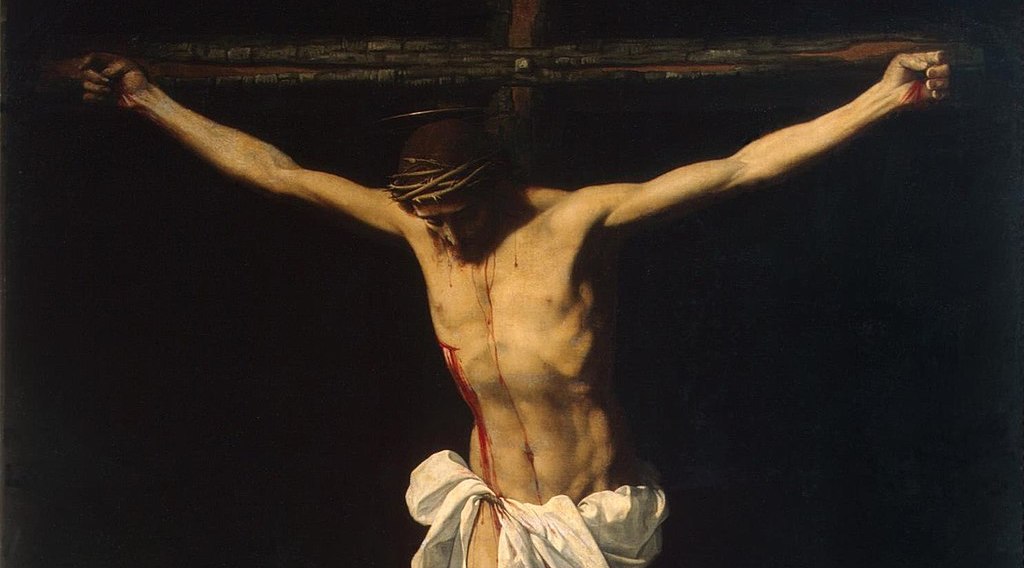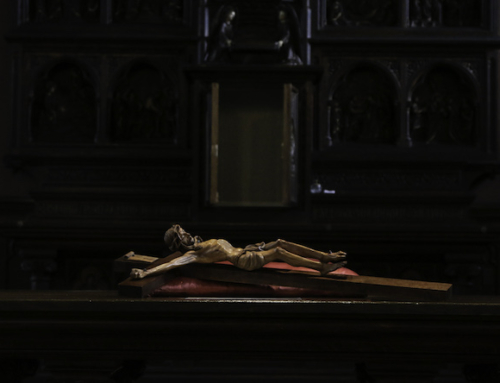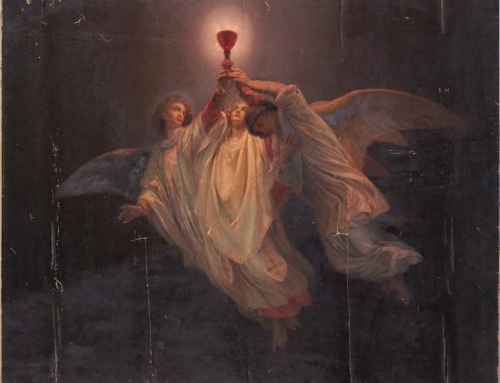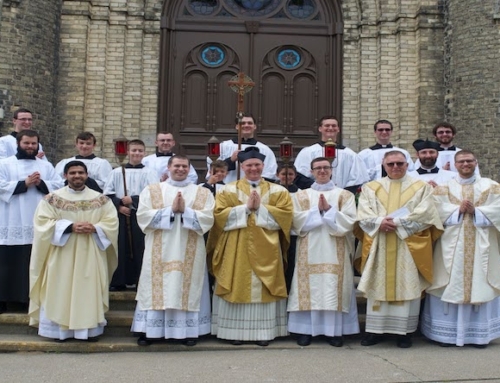Blood is not usually associated with peace. War and chaos bring blood. Fear and pain give rise to the spilling of blood. Losing blood induces death. Peace is not the result of blood.
Yet with all of this known, Saint Paul exhorts us that Jesus is “making peace through the blood of his cross” (Col 1:20). How are we to reconcile his blood, drawn from an instrument of torture, with peace?
To begin seeing the unity of this mystery, we need to look back to Leviticus. “For on this day atonement shall be made for you, to cleanse you; from all your sins you shall be clean before the Lord” (Lev 16:30). Every year, the Jewish people observe a Day of Atonement in remembrance of the Mosaic covenant established on Mount Sinai. During the time of ancient Israel, the high priest would sacrifice a bull for himself and a goat for the people. He would sprinkle the blood of the sacrificed animals inside the meeting tent, where the Lord would dwell above the mercy seat. After this sprinkling, the high priest would lay his hands on the head of a second goat, symbolically placing the sins of the people on the animal. Then this scapegoat would be sent out into the wilderness, carrying off with it the iniquities of Israel (see the Catholic Bible Dictionary).
Sin offends God and severs our relationship with him. The Israelites performed this ritual as a means of mending their connection with God, as a way of atoning for their sins.
But while the blood of an irrational animal alone is unable to remove sin, this sacrificial offering foreshadowed the blood of Christ the High Priest, “the Lamb of God who takes away the sin of the world” (John 1:29). And while the shedding of Christ’s blood is a material reality, it also indicates a spiritual truth—the forgiveness of our sins. Saint Thomas Aquinas clarifies our need for these material realities when he explains that God helps us understand spiritual truths by means of material things (ST I q. 1, a. 9, co.).
Here is where we start to form the connection between blood and peace. Jesus pours out his blood, and this material reality shows us the spiritual truth: our sins are forgiven. In The City of God, Saint Augustine calls the peace of the celestial city “the perfectly ordered and harmonious enjoyment of God, and of one another in God.” Through the blood of his cross, Jesus cleanses us from our sins and restores us into right relationship with God, and the ensuing harmonious enjoyment of God brings us peace.
We are reminded of these realities in this upcoming Sunday’s celebration of Christ the King. At Mass we will hear in the second reading, “Jesus Christ is the faithful witness, the firstborn of the dead and ruler of the kings of the earth. To him who loves us and has freed us from our sins by his blood . . .” (Rev 1:5–8). Sin brings death to the soul, but Christ died to give life. Impelled by his love for us, he offers himself as a sacrificial victim to save us from our sins. This is our joy, that “Christ Jesus came into the world to save sinners” (1 Tim 1:15). Christ’s blood is a reminder of what God has done for us, of how much God loves us. When we see Jesus on the cross, we might ask him, “Why are you there?” He would respond, “For you. I’m here because I love you.” Through his death, Jesus restores our life, alleviates our fear, and gives us his peace.
Peace I leave with you; my peace I give to you; not as the world gives do I give to you. Let not your hearts be troubled, neither let them be afraid. (John 14:27)
✠
Image: Alonso Cano, Crucifixion







